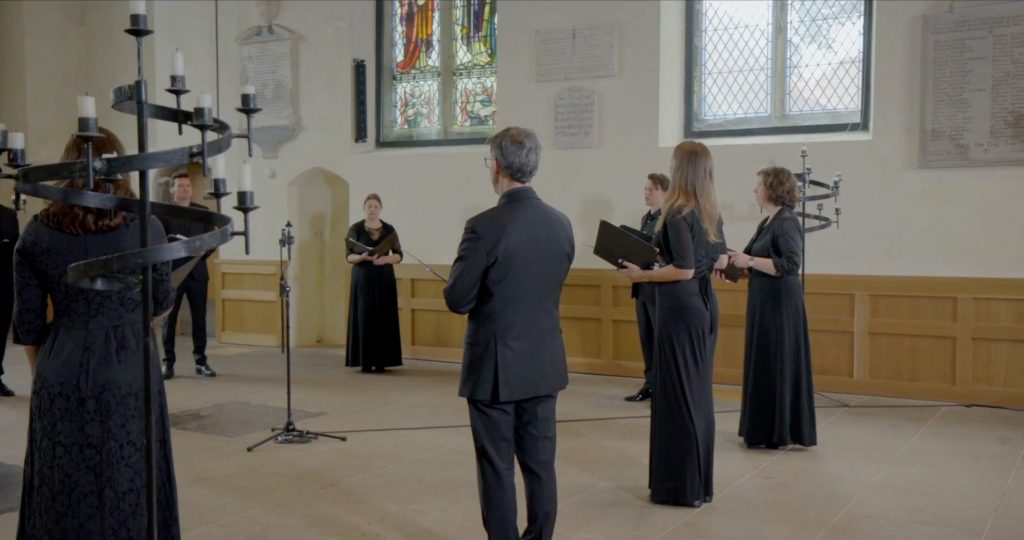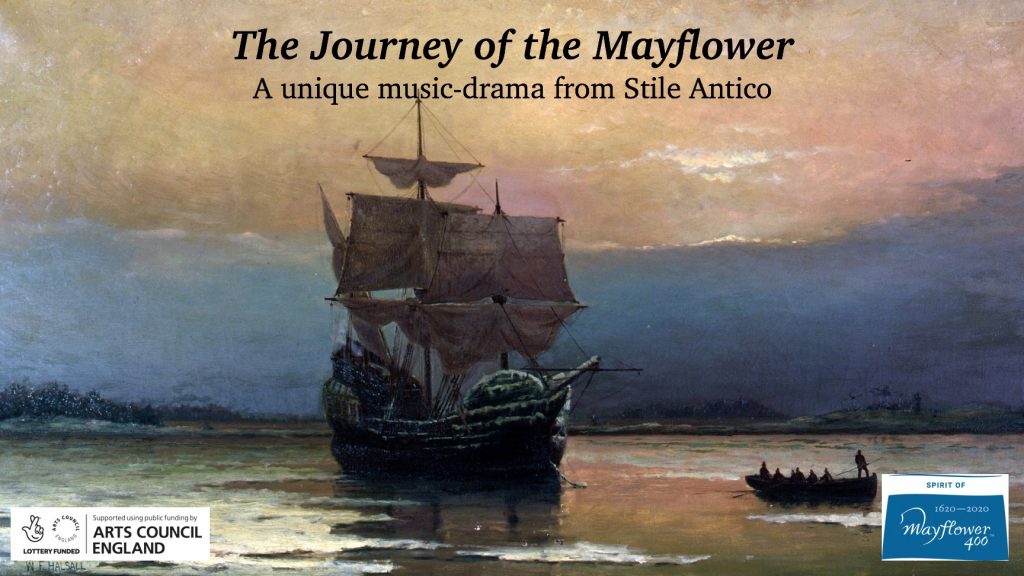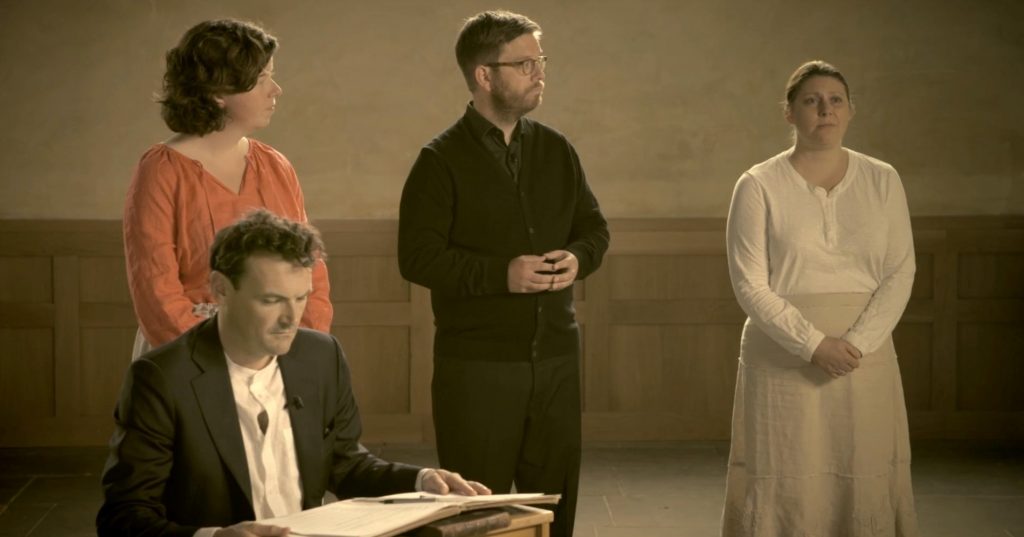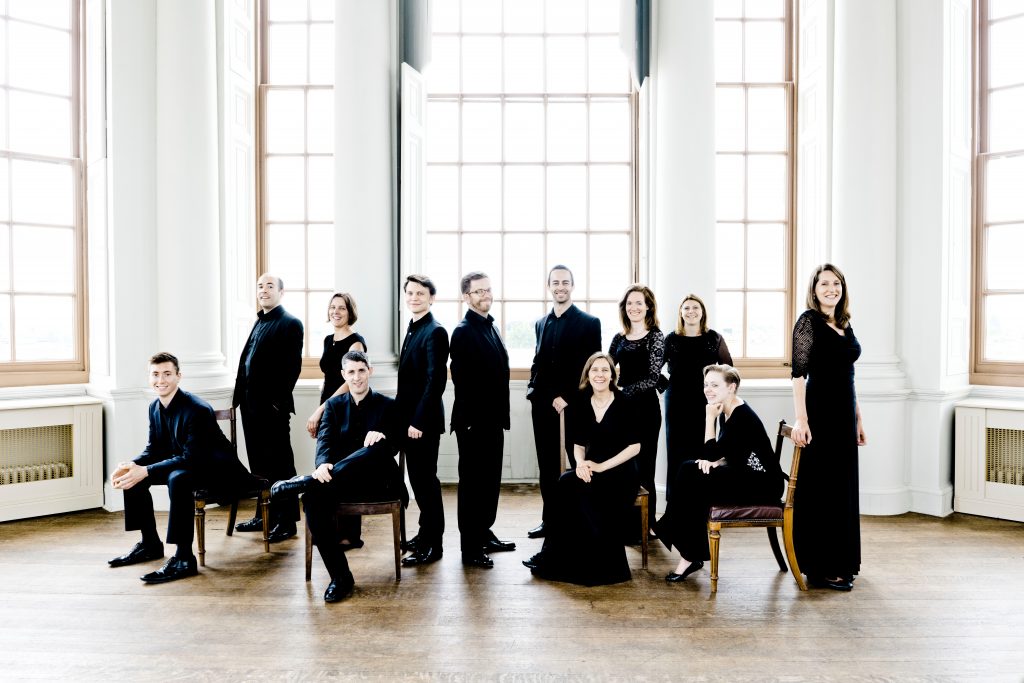[ezcol_1half]
Guest post: vocal ensemble Stile Antico introduce their unique music-drama
It was some years back that we spotted, on the horizon, the anniversary of the sailing of the ‘Mayflower’. As a vocal ensemble specialising in music of the 16th and 17th centuries, we knew plenty about the music of the time of the Pilgrims, but perhaps rather less of the context in which it was created. As a group that crosses the Atlantic several times a year for extended concert tours, we were particularly drawn to their story!
1620 was something of a high point for music in England. Many of the finest composers ever to have worked here were at their compositional peak. In Italy and elsewhere in Europe, composers such as Monteverdi were laying the groundwork for the musical Baroque and the development of a new musical form – Opera – but the musical style on these shores was rather more reserved. The masterpieces of the so-called ‘Golden Age of English Music’ have a restrained beauty, and a uniquely introspective quality. It seemed to us there might be the basis of an interesting programme, exploring the story of the Mayflower’s voyage using music from the time.

We set about reading anything we could find on the Mayflower, and eventually the programme took shape. We engaged dramatist Katharine Armitage to create a script, woven around extracts from William Bradford’s first-hand account Of Plimouth Plantation. Katharine created a wonderful drama, telling the story of the Pilgrims journey while also giving voice to some of the ‘unheard voices’ of the story – the women and crew, for example – and ensuring that the effect of the Pilgrims’ arrival on the native Wampanoag tribe was not neglected. Interspersed throughout this is a selection of some of the finest music of the time.
The extracts from Bradford’s account of the voyage gave us some fantastic original material to base the drama around, but also presented some challenges. We were putting together the project as the Black Lives Matter movement was staging protests around the world, and we were keenly aware of the need to be sensitive in telling the story. It was important that we didn’t silence the historical sources we were using, but also to imagine some ways in which the voices that are usually historically neglected in this period, might have thought along different lines. Katherine Armitage uses these voices in the script to challenge Bradford, and tell a much more complex story. Perhaps also, as we were singing their music and so drawing on their emotions, we felt that it was also important to capture the plight of the pilgrims. It seems increasingly difficult to present a nuanced version of these complicated issues in our modern world, but we think we got the balance right.
In selecting the music for the programme, we were keen to explore the full range of sacred music from the time. The Pilgrims themselves were, of course, not hugely keen on elaborate church music (it being rather uncomfortably ‘Catholic’ for their tastes!), although they weren’t entirely without music. One of the pieces from our programme, for example, comes from a psalter carried on board the Mayflower by William Brewster. The music in our programme gives something of an overview of the music of the time – there are simple Calvinist melodies woven into attractive and simple choral textures, large-scale complex pieces written for the English Chapel Royal, and even a piece of Latin polyphony. In the music, we catch a glimpse of the religious conflict that had riven the country for generations leading up to 1620. But there is also something immediate in hearing the music that the Pilgrims themselves would have heard. We are cast back immediately to the time, without the barriers of time and space.
Our plan had been to perform the programme around the UK in 2020. We were due to perform the piece at least twelve times, including a BBC Prom in Plymouth. All that was, of course, cancelled due to the pandemic. So instead we have created a unique music-drama film. The programme works beautifully as an hour-long drama, and we are delighted with how it has turned out. We hope it helps to bring the fascinating story of the Pilgrims alive again, and shed new light on a fascinating and complex period of history.
You can view a trailer and watch the film online at www.vimeo.com/ondemand/thejourneyofthemayflower.
[/ezcol_1half]



